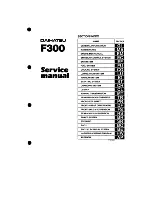
Your car’s seats are designed to keep
you in a comfortable, upright
position so you can take full
advantage of the protection offered
by seat belts and the energy
absorbing materials in the seats.
How you adjust your seats and seat-
backs can also affect your safety. For
example, sitting too close to the
steering wheel or dashboard
increases the risk of you or your
passenger being injured by striking
the inside of the car, or by an
inflating airbag.
Reclining a seat-back too far reduces
the seat belt’s effectiveness and
increases the chance that the seat’s
occupant will slide under the seat
belt in a crash and be seriously
injured.
Always wear
your seat belt properly, and sit
upright and as far back as possible
from the steering wheel or
dashboard.
They are designed to supplement
the seat belts.
To do their job, airbags must
inflate with tremendous force and
speed. So while airbags help save
lives, they can cause minor injuries,
or more serious or even fatal
injuries if occupants are not
properly restrained or sitting
properly.
The most important things you need
to know about your airbags are:
Your car also has side curtain
airbags. During a moderate to severe
side impact, side curtain airbags help
to protect the heads of the driver,
front seat passenger, and passengers
sitting in the outer rear seating
positions.
U.S. EX-V6 model, optional on Canadian
EX-V6 model
Driver and Passenger Saf ety
Your Car’s Safety Features
Seats and Seat-Backs
What you should do:
Airbags of f er no protection in rear
impacts, rollovers, or minor
f rontal or side collisions.
Airbags do not replace seat belts.
Airbags can pose serious hazards.
10














































